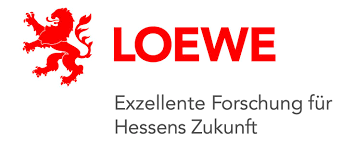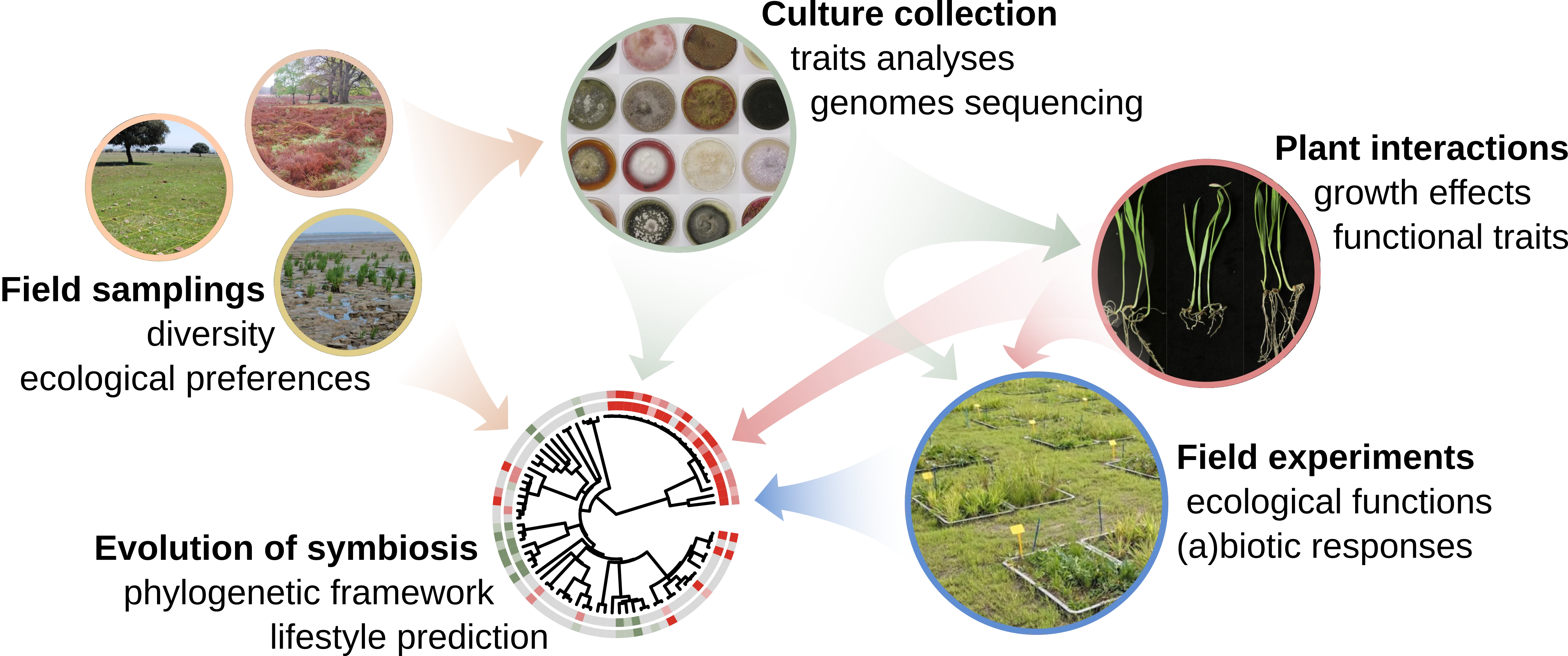
Beatriz Galindo 2023
2024-2028
This project aims to elucidate the functional diversity of root-associated fungi, and how they affect productivity of natural plant communities. It will involve a number of approaches ranging from fungal biogeography, community ecology, molecular biology, and organismal biology, with the ultimate goal of understanding how these fungi interact with plants and influence ecosystem processes. Besides the fundamental scope of the project, its results may have applied potential for agriculture and circular economy by identifying beneficial fungal agents and fermentation processes driven by fungi.

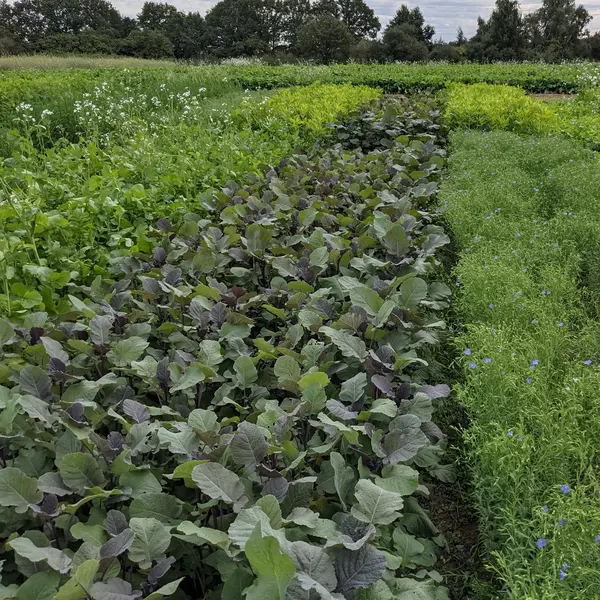
The effect of cover crop diversity on the AMF community
In this project we aimed to identify potential feedbacks between cover crops and the soil communities of Arbuscular Mycorrhizal Fungi (AMF). We determined how different cover crops modify AMF diversity and community structure in soil, and whether these changes affect the cover crop's productivity in turn. Results from this project have been published here , and will inform new management practices that harness crop biodiversity to decrease fertilizer use.

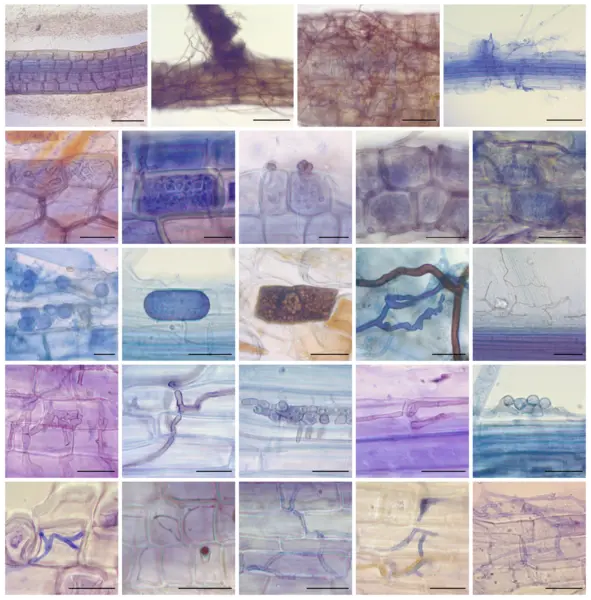
Mycorrhizal or not mycorrhizal? Assessing the role of root-associated fungi in plant nutrition
Plant roots associate with complex microbial communities, including fungi that can be pathogenic or mutualistic. While mycorrhizal fungi are well-studied, many root-associated fungi have unknown ecological functions and effects on plant growth. In this project, we systematically assessed the potential ability of fungi that associate with roots, but do not engage in mycorrhizal associations, to assist plants in the uptake of soil nutrients. The study involved sampling fungal diversity across nutrient gradients, isolating functionally relevant groups of fungi, and testing their involvement in plant nutrition. Results from this project will help understand the evolution of the root-symbiotic lifestyle in fungi and contribute to sustainable agriculture practices.

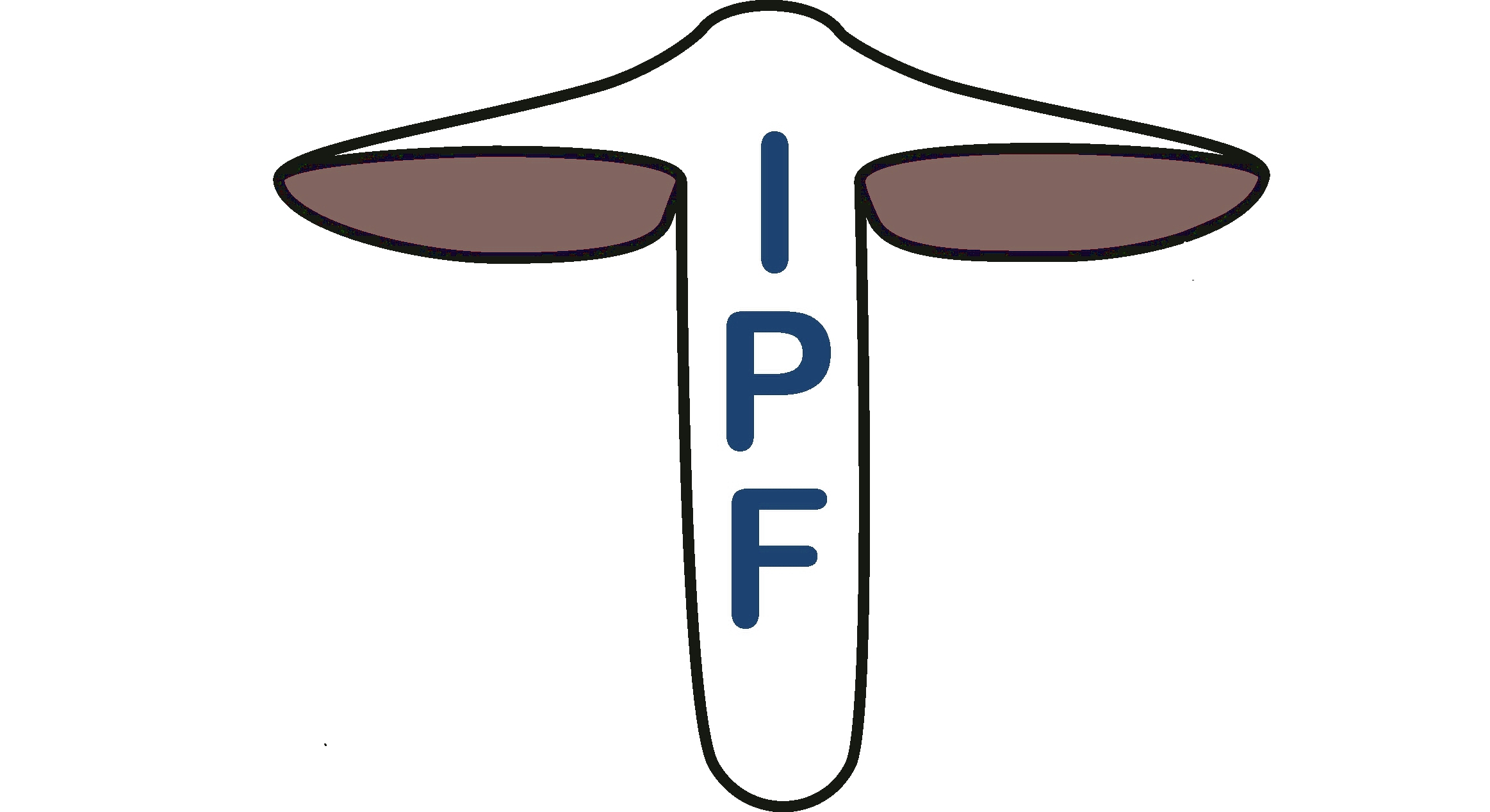
Integrative Fungal Research
The LOEWE Research Center for Integrative Fungal Research was aimed at advancing our understanding of fungi and their vast applied potential. This collaborative project brought together five partner institutions from the German state of Hesse to study fundamental aspects of fungal diversity and its practical applications in fields like medicine and food production. As part of IPF, our team focused on studying the diversity and ecology of plant-associated fungi, especially those that grow within plant tissues without causing any harm (aka endophytes). Despite their ubiquity, the true impact of endophytes on plant growth and health has remained largely unexplored. This project advanced our understanding of endophytes' diversity, their biogeography, and the various interactions in which they engage with plants, from beneficial to detrimental.
